Western Australia’s strategy of catching and killing sharks via baited hooks is “indiscriminate” with no evidence that it will make the ocean safer for swimmers and surfers, according to a group of 301 scientists from around the world.
In a submission to WA’s Environmental Protection Authority, the experts say the lethal program is “not scientifically supported” and will damage the ecology of the ocean.
The submission, backed by marine scientists from countries including Australia, the UK, the US and Spain, states: “The impacts on targeted wildlife and regional ecosystems are unquantified and have the potential to be significant.
“Given the range of non-lethal, demonstrably effective strategies available to mitigate risk and improve our understanding of shark distributions and behaviour, we need to move beyond lethal options.”
The EPA is assessing the impact of the shark strategy, which was run as a 13-week trial from January by the WA government. The program involved the setting up of baited hooks, attached to drumlines, 1km out from more than 70 beaches in the Perth and southwest WA area.
Implemented in the wake of five fatal shark attacks on humans in the past 10 years in WA, the strategy aimed to kill any shark measuring over 3m. Large sharks found on hooks were shot dead by contractors.
In total, 172 sharks were caught in the trial period, of which 163 were tiger sharks and none were great whites, considered the most dangerous species. The WA government plans to reintroduce the program for a three-year period.
The marine scientists’ submission said evidence from places such as Queensland and Hawaii shows that the drum line program will not improve safety. It points out that tiger sharks have not been implicated in an attack in WA waters since 1925, with many small sharks killed as a result of the program.
Professor Corey Bradshaw, an ecologist from the University of Adelaide who signed the statement, said: “Killing sharks indiscriminately will never reduce shark attacks on humans until we kill every last one of them.
“Committing comprehensive sharkocide like that would only destroy the ocean ecosystem supporting recreational diving, fishing, oxygen production and climate regulation.
“The Western Australian government’s policy is nothing but a political circus and will only do long-term damage.”
Professor Jessica Meeuwig, from the University of WA, added: “To have over 300 researchers, including some of the world’s top shark specialists and marine ecologists, all strongly agreeing that there is no scientific basis for the lethal drum-line program, tells you how unjustified the government’s proposal is.
“If the EPA and the federal minister for the environment are using science for decisions, the drumline proposal should not be approved.”
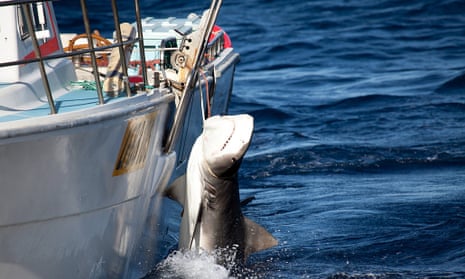
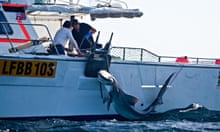

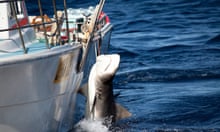
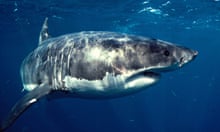

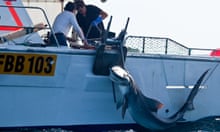
Comments (…)
Sign in or create your Guardian account to join the discussion